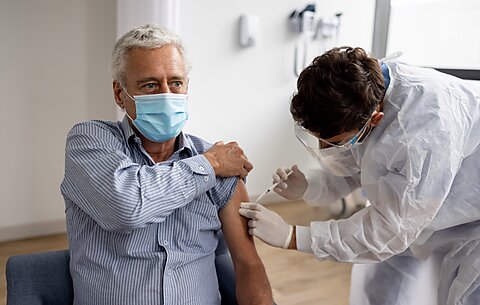On June 9, Secretary of Health and Human Services (HHS) Robert F. Kennedy Jr. announced that he has fired all 17 members of the Advisory Committee on Immunization Practices (ACIP) and will appoint a new committee in the coming days. This news prompted outrage among health care professionals, who worry that the newly appointed ACIP committee will be filled with members who share Secretary Kennedy’s vaccine skepticism, further fueling the skepticism already rising among the general public. The public’s distrust stems largely from the incoherent and heavy-handed policies enforced by government public health officials during the COVID-19 pandemic.
As a medical doctor, I share my professional colleagues’ concerns, although my reaction is more nuanced. Let me explain.
The Affordable Care Act, enacted in 2010, added to Section 2713 of the Public Health Service Act the requirement that most private health insurance plans, Medicare, and Medicaid cover immunizations adopted by the Centers for Disease Control and Prevention (CDC) from ACIP’s list of recommended vaccinations without cost-sharing, meaning no out-of-pocket payments by beneficiaries. Among the many factors that have, paradoxically, made health insurance unaffordable is the ACA’s Essential Health Benefits mandates, which force people to buy insurance coverage for health services they may not want or need, or believe they can pay for at a lower price than what a third-party payer would negotiate for them.
Immunizations are arguably the most beneficial and cost-effective provision the ACA mandates. However, exempting beneficiaries from cost-sharing does not mean the immunizations are free. The health plan pays for them and passes the cost on to consumers in the premiums they pay—including to consumers who fear and distrust vaccines. The ban on cost-sharing simply means that beneficiaries pay indirectly for these vaccines.
There is also the question of what the proper role of government is in a free society. Governments have a legitimate role in addressing public health challenges. A key idea in the liberal tradition is the harm principle, which British philosopher John Stuart Mill articulated. In his work On Liberty, Mill argued that power over an individual can only be justified to prevent harm to others, not for the individual’s own benefit, whether physical or moral.
Mill’s harm principle supports government actions aimed at preventing harm to others. In the realm of public health, this principle underlies efforts to control infectious diseases and manage environmental pollution. Therefore, it is appropriate for the government to engage in public health policy, particularly in areas where the actions of some may threaten the lives and safety of others. Too often, government-directed health policy today focuses on personal health issues, which individuals can assess and manage on their own, consulting experts as necessary.
Several of the “vaccine-specific recommendations” adopted by the CDC from ACIP meet the definition of public health recommendations. Examples include vaccinations against measles, polio, human papillomavirus (HPV)—which is responsible for a sexually transmitted disease that causes cervical cancer—and Ebola. Encouraging the public to receive immunizations against such infections helps mitigate the unintentional transmission of these infections, which can negatively impact others.
However, the ACIP recommends additional vaccinations from its list for personal health reasons. While vaccines like tetanus and shingles are clearly personal health choices, others—such as influenza or even COVID-19—may blur the line, depending on the context and population-level risk. It may be advisable for most people—particularly older individuals and those with weakened immune systems—to receive these vaccines; however, their choice will not affect the health and safety of others. As I write in Your Body, Your Health Care, autonomous adults have the right to make their own decisions, in consultation with health care professionals if they choose, free from government interference. The government should not attempt to influence them, nor should it require health plan beneficiaries to indirectly pay for these vaccines.
As a physician, I worry about the erosion of scientific integrity. But I also see this as an opportunity for the CDC and ACIP to refocus on protecting the public from genuine external threats while respecting individuals’ autonomy to manage their personal health.

